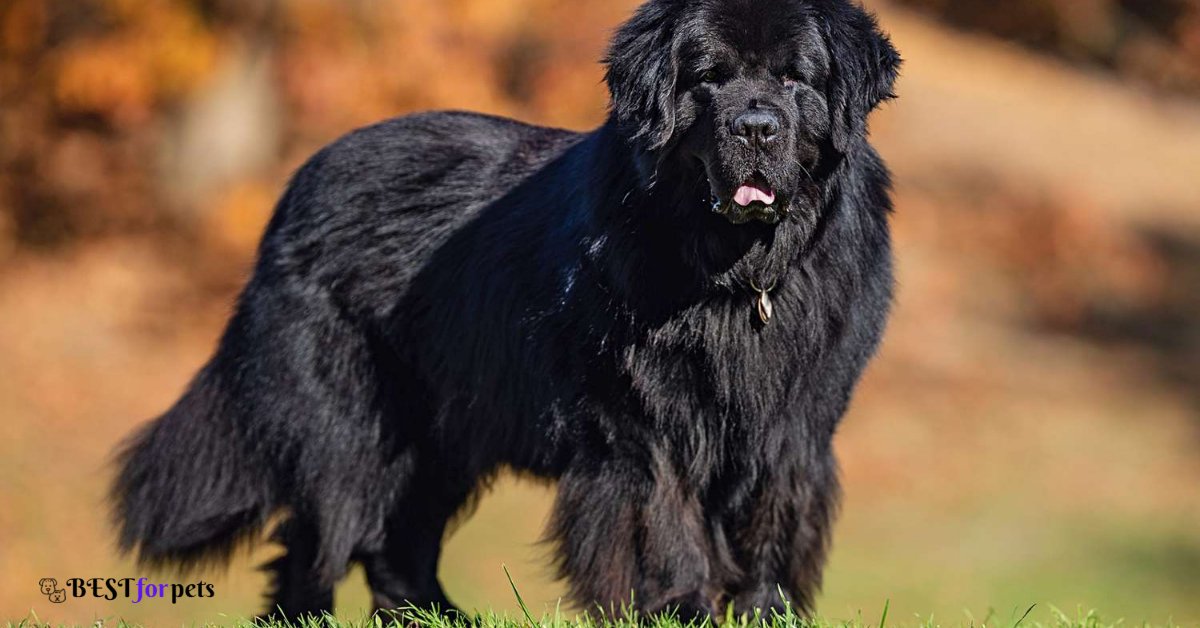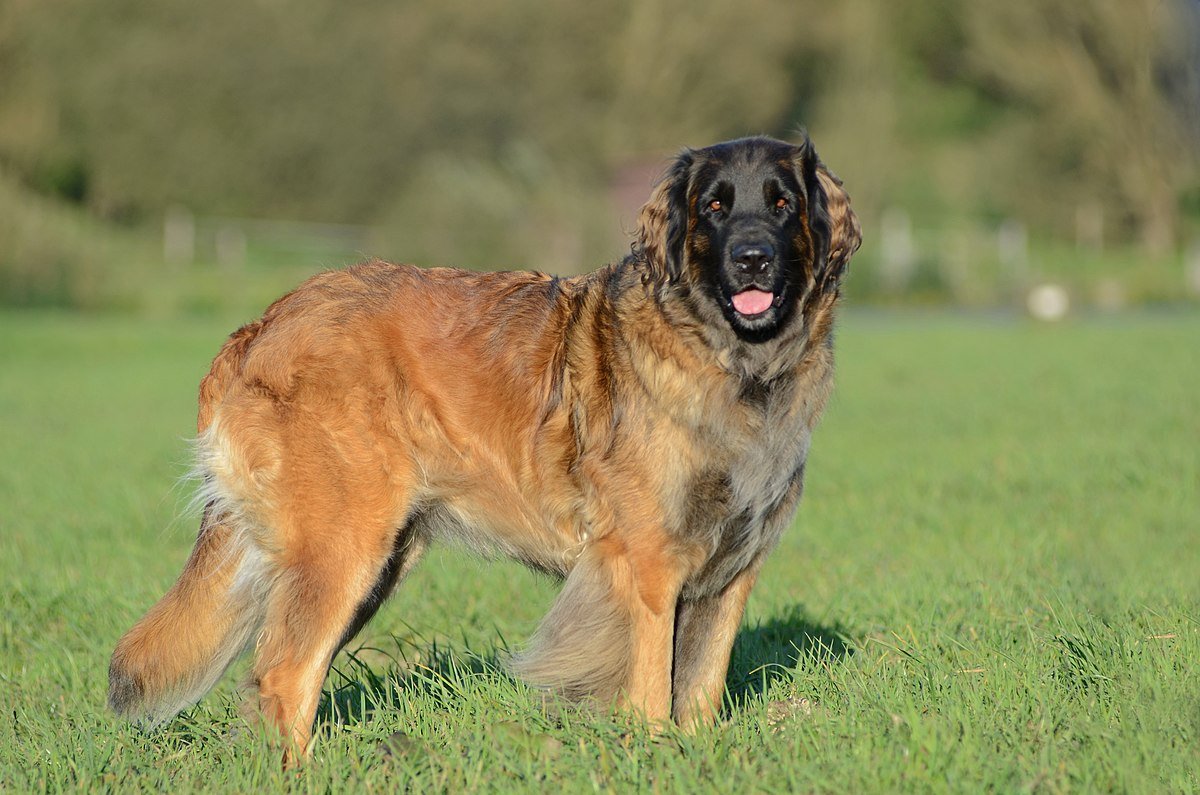Newfoundland Vs Leonberger
Newfoundland vs Leonberger: History and Origins
Newfoundland: Newfoundlands have a rich and storied history that can be traced back to the island of Newfoundland in Canada. These dogs were the result of crossbreeding between indigenous Canadian dogs and European working dogs, likely brought to Newfoundland by explorers and fishermen.
Their primary purpose was to assist fishermen with their arduous tasks. The breed’s exceptional swimming abilities and strength made them invaluable for water rescues in the harsh North Atlantic waters. Over time, they became beloved companions and working dogs, known for their loyalty and reliability.
Leonberger: The Leonberger, in contrast, has a relatively more recent origin. They were meticulously bred in the 19th century in the town of Leonberg, Germany, by Heinrich Essig, who aimed to create a breed resembling the lion on the town’s crest.
To achieve this, he crossed Saint Bernards, Newfoundlands, and other large breeds. The Leonberger’s main purpose was as a working and companion dog for European nobility. Their majestic appearance and gentle temperament quickly made them popular among the elite.
Newfoundland vs Leonberger: Appearance and Characteristics
Newfoundland: Newfoundlands are renowned for their impressive size and strength. They are one of the largest dog breeds, with males typically weighing between 140 to 180 pounds (64 to 82 kilograms) and standing 28 inches (71 centimeters) or taller at the shoulder.
These dogs have a thick double coat that provides insulation against cold water, which comes in black, brown, gray, and Landseer (white with black markings). Their webbed feet and powerful swimming strokes make them exceptional water dogs.
Leonberger: Leonbergers are equally impressive in size and stature. Males typically weigh between 110 to 170 pounds (50 to 77 kilograms) and stand 28 to 31.5 inches (71 to 80 centimeters) tall at the shoulder. They have a thick, water-resistant double coat that comes in various colors, including lion-yellow, red, and red-brown.
Leonbergers possess a distinctive, expressive face with a black mask and a gentle, intelligent expression. Their build is well-balanced, exuding both strength and elegance.

Newfoundland vs Leonberger: Temperament
Newfoundland: Newfoundlands are often described as gentle giants. They are known for their sweet, patient, and nurturing nature. These dogs are incredibly loyal to their families and are often referred to as “gentle giants” due to their calm and affectionate demeanor. They are excellent with children and make wonderful family pets.
Newfoundlands are also highly trainable and eager to please, although their size may require some basic obedience training to ensure good manners.
Leonberger: Leonbergers share many of the same temperament traits as Newfoundlands. They are gentle, affectionate, and devoted to their families. These dogs are known for their friendly disposition and are particularly good with children. Leonbergers are often described as both dignified and playful, making them excellent family pets.
Their intelligence and eagerness to please make them relatively easy to train, although early socialization and consistent training are essential due to their large size and strength.

Newfoundland Vs Leonberger: Health
Newfoundland:
Newfoundlands are generally healthy dogs, but like all breeds, they are prone to specific health concerns. Some common health issues in Newfoundlands include hip and elbow dysplasia, heart problems like subaortic stenosis, and a genetic condition called cystinuria, which can lead to bladder stones.
Regular vet check-ups, a balanced diet, and exercise can help maintain their overall health. It’s important to keep in mind that their massive size can put additional strain on their joints and increase the risk of certain ailments.
Leonberger:
Leonbergers, like Newfoundlands, are prone to certain health conditions. These may include hip and elbow dysplasia, bloat (gastric torsion), and heart problems such as dilated cardiomyopathy. Responsible breeding practices can help reduce the risk of genetic health issues.
Regular veterinary care, a healthy diet, and moderate exercise are essential for the well-being of Leonbergers. It’s crucial to monitor their growth and weight, as their size can make them more susceptible to joint and skeletal issues.
Newfoundland Vs Leonberger: Trainability
Newfoundland:
Newfoundlands are generally known for their trainable nature. They are intelligent and eager to please, making them quick learners when it comes to basic obedience and commands. Their gentle disposition means they respond well to positive reinforcement training methods.
Early socialization is essential to ensure they grow up to be well-adjusted and confident dogs. However, it’s important to be patient and consistent with their training, as their large size can make them strong-willed at times. Positive reinforcement techniques, such as treats and praise, work effectively to motivate them during training sessions.
Leonberger:
Leonbergers share a similar trainability profile with Newfoundlands. They are intelligent, responsive, and eager to please their owners. Early training and socialization are crucial to ensure they develop into well-mannered adults. Due to their size, it’s important to establish boundaries and basic obedience commands early on to ensure they are manageable in various situations.
Positive reinforcement methods work well with Leonbergers, as they respond positively to rewards and praise. Consistency and patience are key to successfully training these gentle giants.
Newfoundland Vs Leonberger: Bark
Newfoundland:
Newfoundlands are not known for excessive barking. They tend to be relatively quiet dogs, although they will bark when they sense something unusual or when they are trying to alert their owners. Their deep, booming bark can be quite intimidating, which can be a useful deterrent if you want a protective dog without constant noise.
Leonberger:
Leonbergers, like Newfoundlands, are not prone to excessive barking. They are typically quiet and reserved dogs, although they will bark if they perceive a potential threat or if they are trying to communicate something. While they may not be as vocal as some other breeds, their imposing size and dignified presence can be an effective deterrent to intruders.
Newfoundland Vs Leonberger: Adaptability
Newfoundland:
Newfoundlands are well-suited to living in a variety of environments, including both urban and rural settings. They adapt well to indoor living and are known for being calm and well-behaved indoors. However, due to their large size and thick double coat, they are more comfortable in cooler climates. In hot weather, they are prone to overheating, so it’s essential to provide them with plenty of shade and water.
Leonberger:
Leonbergers are adaptable dogs that can thrive in different living situations. They are generally well-behaved indoors and are comfortable in various climates. However, like Newfoundlands, they can be sensitive to extreme heat due to their thick coats, so precautions should be taken in hot weather. They can adapt to apartment living if provided with enough exercise and mental stimulation, but they do best in homes with larger yards where they can roam and play.
Newfoundland Vs Leonberger: Nutrition
Newfoundland:
Newfoundlands have specific dietary needs due to their large size and potential for joint issues. It’s crucial to provide them with a high-quality dog food formulated for large breeds. Care should be taken not to overfeed them, as obesity can exacerbate joint problems. Regular monitoring of their weight and consultation with a veterinarian for a suitable feeding plan are essential.
Leonberger:
Leonbergers, like Newfoundlands, require a balanced diet tailored to their size and activity level. Special attention should be given to their growth phase to ensure they develop strong bones and joints. Feeding them a diet appropriate for large breeds and monitoring their weight is vital to prevent health issues associated with obesity. Consulting with a veterinarian or a canine nutritionist can help create a suitable feeding plan for Leonbergers throughout their life stages.
Frequently Asked Questions
Are Newfoundlands and Leonbergers good family pets?
Yes, both Newfoundlands and Leonbergers are known for their gentle and affectionate nature, making them excellent family pets. They are particularly good with children due to their calm and patient temperament. However, their large size should be taken into consideration, especially around small children, to prevent accidental knocks or falls.
Do Newfoundlands and Leonbergers get along with other pets?
Yes, both breeds can get along well with other pets, including other dogs and cats, if they are properly socialized from an early age. Their friendly and sociable nature generally helps them adapt to living with other animals.
How much exercise do Newfoundlands and Leonbergers need?
Newfoundlands and Leonbergers both require regular exercise, but Newfoundlands are typically more laid-back. They benefit from daily walks and moderate exercise to keep them healthy and happy. Leonbergers, on the other hand, are more energetic and need more exercise, including opportunities to run and play.
What are the common health issues in Newfoundlands and Leonbergers?
Both breeds are prone to certain health issues, including hip and elbow dysplasia, heart problems, and bloat (gastric torsion). It’s essential to work with a responsible breeder who conducts health screenings for these conditions. Regular vet check-ups and a healthy diet are crucial for maintaining their overall health.
Are Newfoundlands and Leonbergers good guard dogs?
While both breeds have an imposing size and can deter intruders with their presence, they are not typically aggressive guard dogs. They are more known for their gentle and friendly nature. However, they can alert their owners to unusual situations with their deep barks.

